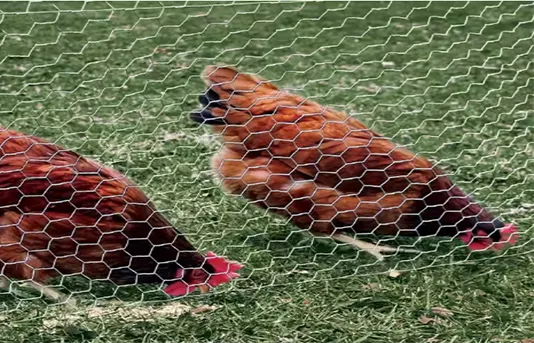-
 Phone:
Phone: -
 Email:
Email:

PVC Solutions for Automotive Wiring and Electrical Applications
The Rise of PVC Automotive Wire in the Automotive Industry
In the increasingly complex world of automotive manufacturing, the choice of materials plays a vital role in ensuring safety, performance, and durability. Among these materials, polyvinyl chloride (PVC) has emerged as a popular choice for automotive wiring. This article delves into the significance of PVC automotive wire, exploring its benefits, applications, and future prospects in the automotive industry.
What is PVC Automotive Wire?
PVC automotive wire is a type of electrical wiring that utilizes polyvinyl chloride as its insulation material. This wire is designed specifically for use in vehicles, where it must withstand a variety of challenging conditions. Automotive wiring is crucial for connecting various electrical components, including lights, sensors, and entertainment systems, and PVC wire offers an array of benefits that make it ideal for such applications.
Advantages of PVC Automotive Wire
1. Durability and Longevity One of the most prominent advantages of PVC automotive wire is its durability. PVC is resistant to moisture, chemicals, and abrasion, making it suitable for the harsh environments within an automobile. It withstands temperature fluctuations, UV exposure, and general wear and tear, ensuring reliable performance over the vehicle's lifespan.
2. Flexibility PVC wire is known for its flexibility, allowing for easy installation in various automotive applications. This flexibility facilitates routing in tight spaces, a common requirement in vehicle assembly, where wires must navigate around components and chassis.
3. Electrical Insulation PVC has excellent electrical insulation properties, reducing the risk of short circuits or electrical failures. This characteristic is crucial in preventing accidents and maintaining the overall safety of the vehicle.
4. Cost-Effectiveness Compared to other insulation materials, PVC is relatively inexpensive. This cost-effectiveness allows manufacturers to keep production costs in check while still providing a reliable product. The economic advantages associated with PVC make it a favored choice for automotive manufacturers operating under tight budgets.
5. Fire Resistance Modern PVC automotive wires are often engineered to meet fire safety standards. The addition of flame retardants enhances their ability to resist ignition, significantly reducing the risk of fire hazards in vehicles, which can arise from electrical faults.
pvc automotive wire

Applications in the Automotive Industry
PVC automotive wire is widely used across numerous applications within vehicles. Some of the primary uses include
- Power Distribution PVC wiring is essential for powering the vehicle's electrical system, which includes functions such as lighting, HVAC, and battery management. - Sensor Connectivity Modern vehicles are equipped with a plethora of sensors (e.g., engine sensors, airbag sensors) that require reliable wiring to function accurately. PVC wire maintains the integrity of these connections.
- Entertainment Systems In-car entertainment systems, which have become standard in modern vehicles, also rely on PVC automotive wire for their installation and functionality.
- Safety Features Critical safety features such as ABS (Anti-lock Braking System) and airbag deployment systems depend on robust wiring solutions, where PVC wire plays a significant role.
Future Prospects
As the automotive industry moves towards electrification and automation, the demand for reliable wiring solutions continues to grow. Manufacturers are actively exploring advancements in PVC technology to enhance its performance. Innovations such as improved insulation properties, added environmental resistance, and enhanced fire safety standards will likely shape the future of PVC automotive wire.
Furthermore, the transition to electric vehicles (EVs) presents both challenges and opportunities for PVC wire manufacturers. As EVs require more wiring due to their complex electrical systems, the demand for lightweight, durable, and efficient wiring solutions, including PVC, is expected to surge.
Conclusion
PVC automotive wire stands out as a critical element in the automotive industry. Its durability, flexibility, cost-effectiveness, and safety features make it ideal for a variety of applications within vehicles. As the automotive landscape transforms with the rise of electric vehicles and advanced technologies, PVC wire will undoubtedly remain a key player, helping to ensure that vehicles are safe, efficient, and capable of meeting the demands of modern drivers. Its ongoing development will likely drive innovations that will contribute to the future of automotive technology.
-
Wire Mesh for Every Need: A Practical SolutionNewsJul.25,2025
-
Steel Fences: Durable, Secure, and Stylish OptionsNewsJul.25,2025
-
Roll Top Fencing: A Smart Solution for Safety and SecurityNewsJul.25,2025
-
Cattle Farm Fencing Solutions for Maximum SecurityNewsJul.25,2025
-
Affordable Iron Binding Wire SolutionsNewsJul.25,2025
-
Affordable Galvanized Wire SolutionsNewsJul.25,2025
-
Wire Hanger Recycling IdeasNewsJul.25,2025








